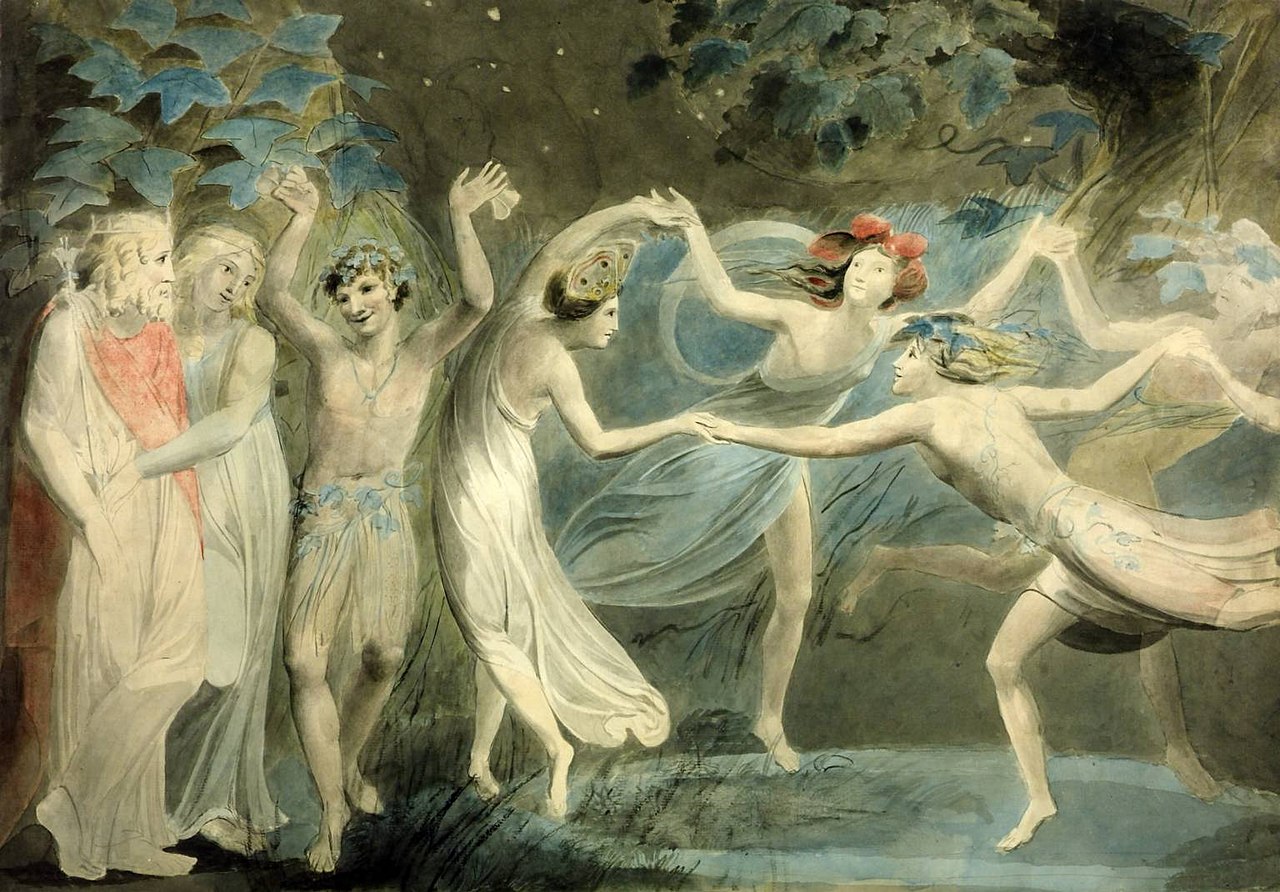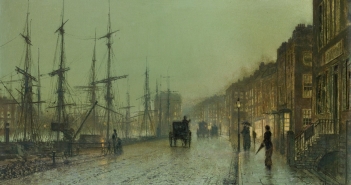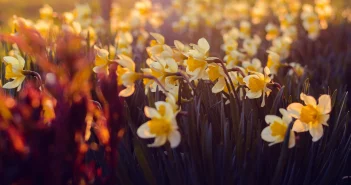The bed had been positioned deliberately near the window so the artist had a view of the sky. The sky embodied eternity. Our creations change with every era, each century brings a new art, but the sky, on a cloudless blue day or in the grey rain, appears as it did to our most remote ancestors. The wind on their skin feels the same to us. He lay there dying, looking up through the window with the eyes of his childhood self. The sky was a glimpse at something death cannot kill. On that day, the day of his death, the sun was shining over London and the artist was filled with joy.
His health was deteriorating and with each passing hour it seemed to his wife Catherine more rapid. Her hope of a recovery was fading. They had been married these past forty-five years and she knew him better than anyone, enough to know he was always capable of the unexpected, and for that, hope remained kindled as it waned. They had caused a stir walking around their garden in Lambeth naked together. They had shocked their neighbours, and the respectable people of the street thought them to be strange at least, others said they were patently mad. The Blakes had refused to bow to the outcry and continued with their nudism throughout the warm summer days. There was one neighbour in particular, a very old lady in the highest room of a nearby house that would sit there in her rocking chair and watch them dance among the azaleas and foxgloves with her long-ago youth flickering in her eyes. Seeing him lying there with his poorly head emerging from the blankets she smiled to remember it. He was a rebel by soul.
Then there was the time they ate in a soup those strange mushrooms that Flaxman had brought up from the West Country in a small wooden box decorated with golden flowers. They had a psychedelic effect. The artist ate the soup, enjoyed the evening and laughed until it was time for bed. The next morning he went for a walk and when he returned full of thoughtfulness he said to his wife over cups of tea and bread and butter that ‘he wouldn’t be doing it again’ as he ‘had no need for them.’ Some years later she remembered out of the blue that he recalled the experience to her and said matter-of-factly that whatever ‘grows on God’s earth must be God’s creation.’ She had no reason to argue with his logic. She herself had enjoyed that evening very much.
Catherine took the bowl of water and placed it on the bedside table before soaking the flannel and resting it on his forehead. The wet cold of the material opened the artist’s resting eyes and he smiled to see her and the sunshine flooding in behind her. Just the vision of her standing there, her face, filled him with happiness. She leant forward and he could see over her shoulder toward the window. He noticed a thousand colours in the dust particles in the air, each one with its own divinity, each one a galaxy. He watched carefully the movement of the dust in the beam of sunlight, slowly synchronising each angled manoeuvre until it became an entire day of his childhood. It was never difficult for him remembering being a child, how it actually felt, the lineaments of thought he once had and soaring of feeling he often experienced. And then his brother Robert died when he was still a boy which only served to intensify the clarity of his visions. He remembered everything. It was on Saturday mornings in the warm spring when his parents allowed him to go off roaming on his own that his relation with the eternal was born. Now this simple, sparse room in which he lay dying was to the artist a realm in itself. With his eyes closed he dreamt like all of us do, with his eyes open he saw worlds beyond worlds and time beyond time.
Blinking slowly he opened his eyes and looked at Catherine’s eyes for a while. When she noticed, she held his stare. With a slight croak in his voice he began to speak.
“Thank you.”
“For what?”
“For my life.” She didn’t quite know what he meant but inferred the meaning ‘I love you.’ She had never doubted it. Tears welled in their eyes. And then suddenly, seeing him lying there so ill, made her deeply sad. It was like a void, an almost violent, unexpected misery that befell her. After all those many long years of marriage she would soon find herself alone. It was only then, on that bright sunny day, that she really felt it for the first time, the potential of loneliness, and when it fell on her it fell hard and pitiful. But he was determined her future happiness reigned over their parting.
The artist began to cough and splutter a little so she put a cup of water to his mouth which he drank from with difficulty. “Sit me up Catherine, I would like to see the river again.” There from the window he looked out at the Thames. Old father Thames was right, it had given birth, knowingly or unknowingly, to every Londoner there ever was or ever will be. “Look” he said “it shines like a bar of gold.”
“It does at that.’ Catherine answered. They both sat there a while looking at the sunlight playing on the water, brave, complete, magically alive. He looked at it for a time and knew for certain that the pangs and pains of death could never crush his spirit. There was just no chance. It seems perhaps unreasonable now, but it was true. Blindingly, obviously true. He, she, we, are nature. The sun beam glittering in the bough of the tree like the melody of the crashing waves on the shingle, or a full bellied peregrine falcon with nothing else to do but fly, make up one whole. The artist leant his head back on the pillow and smiled.
There was a wrap on the door. When Catherine opened it she saw it was one of the artist’s ‘disciples’ and a member of The Ancients, a young man named George Richmond. The Ancients were a group of painters that included Edward Calvert and Samuel Palmer, brought together in brotherly kinship by the love and admiration for the artist, whose life was now drawing to a sad close as he lay on the bed by the window at Fountain Court.
“How is he?” Asked Richmond as Catherine ushered him in from the street.
“He is gravely ill, and coming in and out of consciousness.” She began to cry. Richmond tried to give some kind words of consolation, but soon realised his words could not suffice. He rested his hand on her shoulder in an attempt to comfort her, as he himself now feared the worse. As they entered the room, the drifting of a cloud let a sharp burst of sunlight in. The artist heard the footsteps and his head turned with open eyes as they both entered the room. He recognised the young man immediately.
“Ah. Richmond my boy! Welcome.”
“William. Mr. Blake.” The sight of the dying man made him tremble suddenly. Richmond was only eighteen at this time and death to him, quite rightly, was an abstraction, a fake. He sat down in a chair by the bedside and saw the artists almost pug-like face, frail, wan, and devoid of rosiness.
“How are you feeling Mr. Blake?”
“Ha!” The artist looked over at Richmond and smiled. “I am dying. But do not be troubled. I am travelling to that country I have always wanted to visit!” Then, surprisingly to those present, Blake began to sing. It wasn’t the singing voice of a dying man, but rather someone bursting with life. Catherine became full of delight as the artist went on singing psalms and hymns and for a time she forgot about death, and suffering. He sang ‘Jesus Christ the apple tree’ ‘Come, oh thou traveller unknown’ and ‘Hark the Herald Angels Sing’ among others. He had always loved to sing. Always. Both Catherine and Richmond wept with joy when they sat witnessing these moments. These perhaps final moments.
Then, as one hymn ended, the artist took a sharp intake of breath. His head rocked gently on the pillow. “Quick Catherine, get me my drawing things. I will paint a picture of you! You have been an angel to me.” He looked up at the ceiling and his eyes widened to their fullest extent, dilating with ecstasy. His mouth opened slightly in a sigh of joy. “Behold! The angels!” His mind cried out, but no words came, the only thing audible was the rhythm of his last breaths. Above him he saw his brother Robert in angelic form, bathed in white light beckoning him on, for his spirit to rise, and he saw the archangel Gabriel, smiling as old friends do. He looked at Catherine and thought ‘We will meet again.”
And then, on that summer day, by the river of London, he died. A look of serenity came over his face, and his eyes were open, keen and eager at the last. The death mask that was made reminded The Ancient’s of one the good emperors, full of calm and wisdom. Richmond placed his thumb and middle finger on the artists eyes, and closed them gently. Catherine was still weeping as she showed Richmond out, and as a slight evening summer rain came down, Richmond himself began to cry and continued to cry through the streets and all the way home. Somewhere in those sad joyful tears with the rain wetting his head, he knew the words he would write to Palmer. So strange, in the eyes of the young man, how the artist had greeted death. The absence of fear. The way he sang.
Feature Image: Oberon, Titania and Puck with Fairies Dancing (1786) by William Blake




